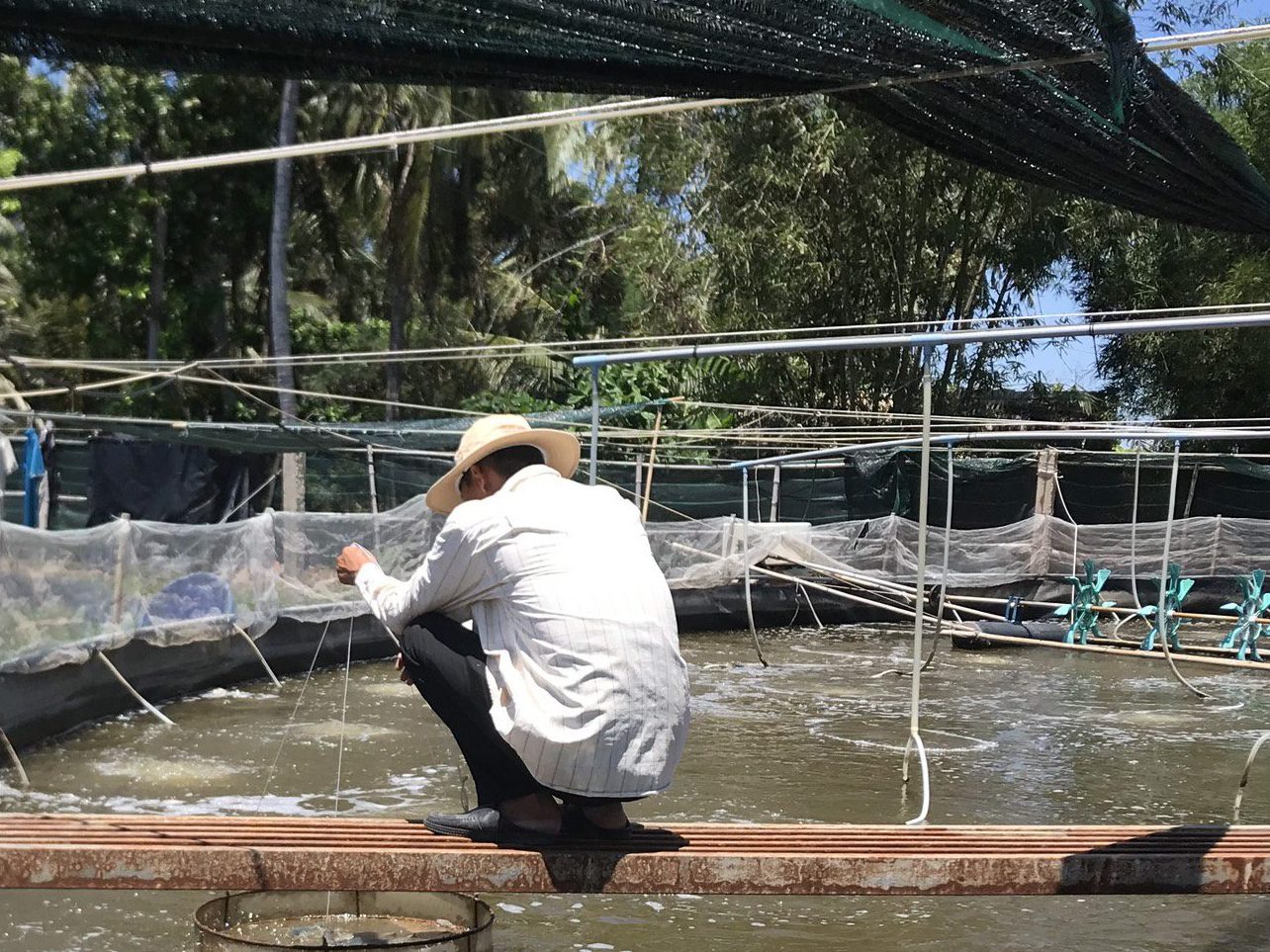HOW TO SUPPLY EFFECTIVE DIGESTIVE ENZYMES IN AQUACULTURE?
In today’s extremely diverse commodity market, choosing quality probiotics to supplement enzymes for aquatic animals is always a top concern of farmers. In particular, digestive enzymes added to the diet are an extremely important and indispensable product for the digestive systems of aquatic animals.
However, the use of poor-quality enzymes, improper use, incorrect dosage, and use with the criterion of “adding as much as possible” not only costs people but also has bad effects on animal health. So supplementing digestive enzymes for animals is appropriate? Let’s learn together with Thai Nam Viet through this article.
Why is it important to add digestive enzymes to the diets of aquatic animals?
Aquatic animals can self-produce endogenous enzymes that hydrolyze organic nutrients, and support the digestive system to help break down large organic molecules into simpler molecules that are easier to digest and absorb. However, during their infancy or throughout the growing cycle, they often do not produce enough enzymes to digest food.
In addition, the food for aquatic animals currently used by people is mainly food with high nutritional content, containing many substances that are difficult to digest, even hindering the digestion process, which leads to the number of endogenous enzymes in aquatic animals is not enough to meet this hydrolysis process. Therefore, shrimp, fish, and other farmed animals are prone to digestive diseases such as white feces, damage to the mucosal receptors that absorb nutrients, live feces that pollute the environment, and waste food.
Besides, the consumption of foods containing high nutritional content requires the hepatopancreas of shrimp to work a lot, leading to overwork and thereby easily encountering hepatopancreatic problems.
In addition, in the intestinal system of animals, there is always an organic biofilm of polysaccharides and protein compounds; this membrane limits the impact of antibiotics on Gram-negative bacteria and viruses. harm is evading detection below. Digestive enzymes have the effect of destroying this biofilm, thereby supporting the inhibition of pathogens in the digestive systems of domestic animals.
Therefore, it is extremely necessary to add digestive enzymes to the diet to support the digestive system, reduce the pressure on the hepatopancreas, and help shrimp and fish absorb nutrients easily and quickly. Besides the fact that the addition of enzymes also helps to eliminate the impact of anti-nutritional factors, digestive enzymes are also considered feed additives to help improve the productivity of farmed seafood and are widely used worldwide.

How to appropriately supply enzymes?
The disadvantage of enzymes is that they cannot withstand high heat and pressure. During food processing, the raw materials are put into a high-pressure autoclave, where the temperature is 90–110oC, and then the pellets are pressed under high pressure once. Furthermore, this process will destroy the enzyme if it is adulterated from the feed mill side. The solution to this problem is to add microbial products capable of secreting enzymes or directly mixing enzymes into the feed before feeding for the best effect.
Currently, it is extremely easy to find digestive enzymes to add to feed aquatic animals. However, people need to be careful when using cheap enzymes that do not guarantee the quality, which can affect the health and digestive abilities of domestic animals. These products not only contain many fillers but also have low enzyme content; when added to pet food, their bodies spend more energy digesting these fillers, thereby reducing their digestibility. digest and absorb nutrients from food.
Therefore, when adding enzymes, it is necessary to choose a quality enzyme, add a sufficient amount that is concentrated and pure, and optimize the efficiency of the enzyme to help animals absorb nutrients best, save costs, and increase profits for farmers.
When do aquatic animals need to supply enzymes?
Enzyme supplementation should be done regularly and periodically during shrimp farming to aid in the digestion process; help prevent gastrointestinal diseases as well as improve nutrient utilization, reduce feed costs and release nutrients into the environment
The addition of enzymes to feed can improve nutrient utilization, reduce feed costs, and release nutrients into the environment. Besides, the cases need to supplement to increase the dose continuously: Pets have intestinal problems
The intestinal tract is broken, and loose; Reduced appetite, poor digestion; The stage of using antibiotics in the culture cycle; The period after the end of the disease; Slow-growing; Adverse environmental conditions; High-density farming (support to reduce environmental pollution); Support liver disease prevention (support and reduce the load on the hepatopancreatic system during digestion); The surrounding area is infected (to support the strengthening of the immune system).

Proposed solutions from Thai Nam Viet
Thai Nam Viet specializes in providing concentrated enzyme products, high content and strong activity with mixed enzymes as well as single enzymes; Powder and liquid forms are imported from leading enzyme manufacturers in the world.

By understanding and grasping the important applications of enzymes, Thai Nam Viet confidently affirms that its products always bring strong effects and will always be an effective assistant to accompany people.
Cre: Tap chi Thuy san Viet Nam





